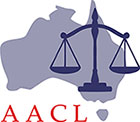Spence v Qld: Federalism revived?
Most political parties in Australia operate at the federal and State level. As a consequence, they are regulated by overlapping State and Commonwealth laws. Spence v Queensland raised difficult questions about this overlap, and produced a rare win for the States. The High Court wholly struck down a Commonwealth law that sought to immunise federal parties from State electoral laws, and wholly upheld a State law that prohibited property developers from donating to political parties, even if the political party operates in the federal sphere.
Spence suggests a renewed willingness by the High Court to consider ‘federalism’ when determining the extent of the Commonwealth’s legislative powers. But the case also brimmed with other questions about the nature of Australian federalism. Does the Commonwealth have exclusive power over federal elections? Is there a reverse Melbourne Corporation doctrine in favour of the Commonwealth? Can the States rely on the experience in other States to impose a burden on the implied freedom of political communication?
Time and venue
20 June 2019, 5.30pm to 6.30pm
Gibbs Room, Ground Floor, Inns of Court
Speaker: Peter Dunning QC
Peter Dunning has been in private practice as a barrister since 1992. He was appointed senior counsel in 2005, and was Solicitor-General for Queensland from 2014 until April 2019. During that time he appeared in many constitutional cases for the State, including Spence v Queensland.
Commenter: Professor Nicholas Aroney
Nicholas Aroney is Professor of Constitutional Law at The University of Queensland. He is also a Fellow of the Centre for Public, International and Comparative Law, a Research Fellow of Emmanuel College at The University of Queensland, a Fellow of the Centre for Law and Religion at Emory University and an External Member of the Islam, Law and Modernity research program at Durham University. Professor Aroney has published over 100 books, journal articles and book chapters in the fields of constitutional law, comparative constitutional law and legal theory. He is currently working on a monograph entitled Federal Constitutionalism: Theory, Principle and Practice.
Register
Please register to attend this event so we know you are coming.
About Current Constitutional Controversies - Occasional Colloquium Series
This series is a joint initiative of:



Current Constitutional Controversies is a high-profile colloquium series dedicated to timely and incisive discussion of the most important constitutional cases decided by the High Court each year, and other topical questions of constitutional law.
The series, presented by the UQ Law School and the Queensland Chapter of the Australian Association of Constitutional Law, provides a forum for leading scholars, practitioners and members of the judiciary to analyse and discuss current constitutional issues.
Attendance
Attendance is on a RSVP basis and restricted to numbers appropriate to a colloquium format.
Papers
Due to the informal nature of the event, speakers will not necessarily prepare written papers. If a paper is written for distribution it will be made available through this website. A hard copy will not be provided at the colloquium itself.
